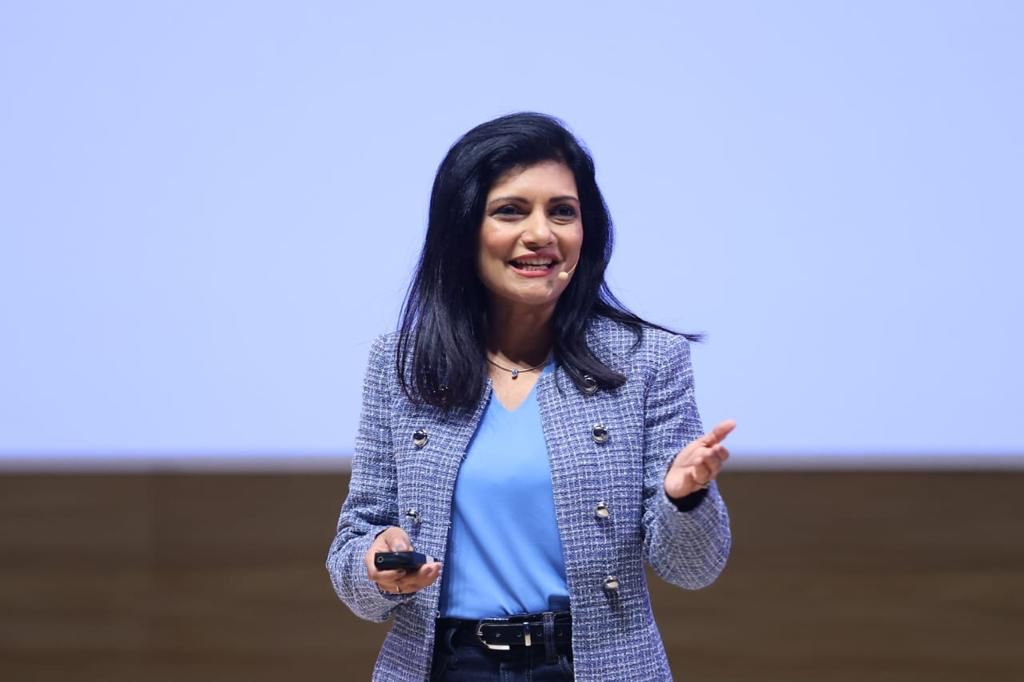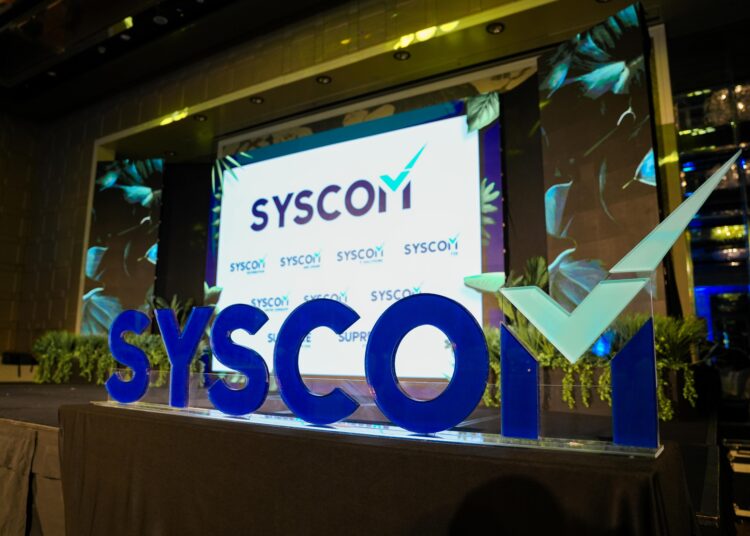Can you provide more information about SAP Labs in India?
SAP conducts 40% of its global R&D operations in India. Additionally, a quarter of SAP’s global patient base originates from India. Currently, we have a workforce of approximately 15,000, with about 12,600 focused on the core R&D functions.
SAP Labs in India is unique because it encompasses the entire breadth of our product portfolio. This comprehensive presence allows us to facilitate seamless integration, maintain consistency in user experiences, and drive various initiatives across the entire product range.
You are planning to double AI talent by next year. Are there enough skills in the market?
Our approach is grounded in practicality, focusing on acquiring the necessary skills to meet market demands. A significant aspect of our strategy is dedicated to upskilling our workforce. We recognize that in our organization, everyone, regardless of their role, must harness the power of AI. To achieve this, we have implemented targeted initiatives and collaborations with universities to develop tailored curriculums. Even before the advent of the Gen AI movement, we had established programs like the 16-month-long initiative in Bangalore in collaboration with TiE. This program allowed individuals to enhance their skills and integrate AI capabilities into their work, irrespective of their starting point. The goal is to empower our workforce and enable them to contribute effectively across various roles.
How do you engage with the broader SAP ecosystem, including partners, customers, and developers? How do they contribute to your innovation ecosystem?
That’s an excellent question because a significant portion of innovation originates from here. SAP Labs India’s primary focus revolves around four key pillars. Firstly, there’s an unwavering commitment to customer-centricity, followed by a dedication to collaboration and innovation. The second pillar emphasizes thought leadership. The third pillar underscores the importance of end-to-end product ownership and the fourth pillar centers on fostering an inclusive culture.
Regarding your question about innovation, we have multiple programs in place to drive it. One noteworthy initiative is our “One SAP” programme, which aims to ensure every engineer at SAP Labs India maintains a strong connection with our customers.
These customers can include partners, startups, or even those at the early stages of engagement with us. We collaborate closely with market units not only in India but also across APJ and other regions. This collaboration ensures that there is a robust interaction between the product backlog and what we are developing, with early input from customers. In fact, we have a continuous influx of customers working closely with our development team, with three to four customers engaging with us daily.
So you do co-innovate.
Co-innovation is a fundamental aspect of our approach. Additionally, our partner ecosystem holds significant importance as we work together to bring solutions to the market at scale. To foster collaboration within this ecosystem, we have implemented various initiatives. For instance, we host events like SAP Insider Track, where we invite partners from the ecosystem to participate in day-long enablement sessions. These sessions often take place on weekends, and our campus becomes a hub of activity, with partners sharing insights and knowledge with one another. It’s a mutual learning experience where partners contribute by showcasing their implementations and sharing valuable ecosystem insights.
Do you develop any country-specific solutions here?
Certainly, we develop country-specific solutions and localize them to cater to the Indian context. For instance, consider aspects like the e-way Bill for GST. We have contributed to these areas with strong R&D, and a significant portion of our efforts goes into localization. It is a key focus for us as legal requirements in different countries, including India, undergo continuous changes. Therefore, we prioritize adapting our solutions to meet these evolving regulatory demands.
Can you give us examples of product innovations that have emerged out of this lab?
SAP Analytics Cloud is a powerful capability that operates on our core Business Technology Platform. It provides a comprehensive suite of tools for creating dashboards, tracking KPIs, and gaining insights into your business processes. For instance, consider the role of a Chief Procurement Officer who needs quick visibility into the procurement process. They can use SAP Analytics Cloud to monitor the status of orders, identify priority orders, and investigate any bottlenecks or issues in the process. This analytics capability is a prime example of end-to-end ownership right here in India.
Moreover, in product demonstrations, you may have noticed the integration of generative AI capabilities in SAP Analytics Cloud. This integration is a testament to our team’s ability to harness the power of generative AI to enhance our solutions.
How committed is SAP to fostering diversity and inclusion?
Absolutely, building a culture of inclusion is a top priority for us. It goes beyond gender diversity; we focus on various aspects, including programs like Autism at Work. This program was initiated in our labs and has become a global industry initiative. Gender diversity, especially increasing the presence of women in the workforce and technology, is of utmost importance to us. While there is still progress to be made in the industry, we aim to set the benchmark and demonstrate what is achievable.
Are you exploring other emerging technologies apart from Gen AI?
We actively collaborate with startups, and we’re involved in a startup accelerator program. India is one of the eight locations where our Innovation Center Network (ICN) operates. Within the ICN, we focus on technologies with a horizon of three to five years, including technologies such as blockchain, augmented reality, and Metaverse. It’s important to note that our approach to innovation is not just about innovation for its own sake; it’s about applying these innovations to real-world use cases.
For instance, in the context of Metaverse, we’ve implemented practical solutions. Consider our employee onboarding process, where many new hires join us. We’ve transitioned to using Metaverse for onboarding, allowing employees to interact with experts across various fields. This approach enables new team members to have conversations with leaders, even the CEO, in a virtual setting. These are concrete examples of how we leverage innovation to create tangible benefits and solutions.
Does SAP practice what it preaches?
Absolutely, we have a deep commitment to ensuring the reliability and effectiveness of SAP systems, given that approximately 87% of the world’s business transactions involve SAP systems. It’s crucial that these systems operate flawlessly. We firmly believe in “eating our own dog food,” which means we don’t just focus on new technologies; we also prioritize the effective management of our own internal operations. For example, in managing our workforce of 100,000 employees, we rely on SAP solutions like SuccessFactors and our core ERP system to streamline processes and maintain efficiency.
Is it possible to utilize SAP’s AI Core and Launchpad for Gen AI?
Certainly, the foundation of our AI services, which are accessible through the Business Technology Platform, is built upon the Gen AI capabilities. Furthermore, as we move up the layers, even our SAP Build Code takes advantage of the Gen AI capabilities. The beauty of this approach is that it seamlessly harnesses the core capabilities of the Business Technology Platform to enhance our AI services.
Are there specific qualities or skills you seek in candidates applying for positions at SAP Labs?
Certainly, problem-solving skills are of paramount importance to us. However, when it comes to hiring, it’s a bit more nuanced because our core mission is to assist businesses in optimizing their operations. This necessitates a strong blend of domain expertise and technical prowess. While we do look for full-stack development capabilities, particularly when it comes to diving into the core of BTP, core Java skills, and the like, we also value candidates who bring a combination of domain knowledge and technical expertise. To foster this expertise, we have programs in place, such as our collaboration with BITS Pilani. For instance, master’s degree students spend their weekends working at SAP. This immersive experience provides them with a comprehensive understanding of our product portfolio.










Discussion about this post